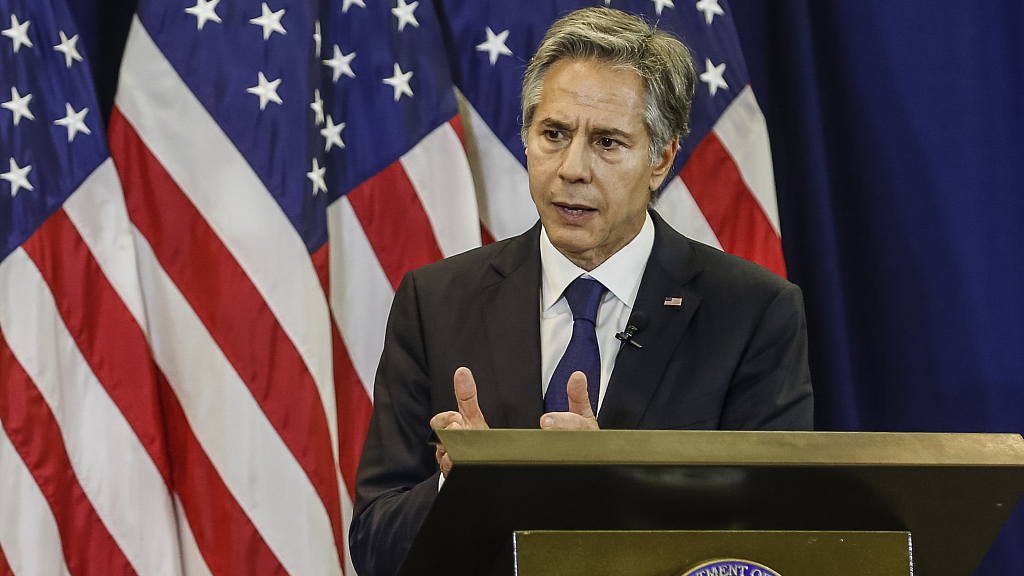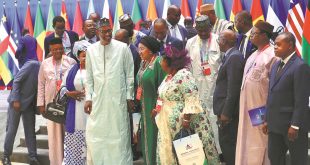Published:July12,2022
By Anthony Moretti

U.S. Secretary of State, Antony Blinken gives statement at the press conference after attending the G20 Foreign Ministers Meeting in Nusa Dua, Bali, July 9, 2022. /CFP
U.S. Secretary of State Antony Blinken did not berate the Chinese delegation during the G20 summit in Indonesia. That alone is a good thing for China-U.S. relations. Instead, he saved his sharpest rhetoric for the Russians.
Blinken met with Chinese Foreign Minister Wang Yi on Saturday, as the G20 gathering continued. Not surprisingly, the ongoing Russia-Ukraine conflict was on the minds of both men, and Reuters reported Blinken was keen to emphasize his country’s displeasure with any role China might play to assist Russia.
Perhaps Blinken deliberately forgot that the U.S. and the West continue to send billions of dollars in arms to Ukraine and expect no nation to criticize that decision, which serves to lengthen the conflict, increase the death toll, worsen the humanitarian crisis and cause even more destruction throughout Ukraine.
In addition, the U.S. and the West maintain that punitive sanctions against Russia are necessary. But they are likely not going to want to hear that the Russian citizens remain adamant that their country ought not to scale back the military effort because of those sanctions. In short, the West needs to consider how its choices are affecting the two primary combatants in a conflict that drags on.
Among Blinken’s responsibilities in his meeting with Wang: Explore the potential for U.S. President Joe Biden and Chinese President Xi Jinping to meet in the coming months. Reuters quoted Wang as saying, “China and the United States are two major countries, so it is necessary for the two countries to maintain normal exchanges.” The consensus at the moment seems to be that a phone or video conversation soon could open the door to face-to-face meetings later in the calendar year.
Thankfully, Blinken did not repeat the embarrassing tirade he delivered when U.S. and Chinese officials met in Alaska about 16 months ago. That meeting, the first between members of the Biden administration and their Chinese counterparts, went off the rails because Blinken chose to publicly rebuke the Chinese. And what was China’s “sin,” according to the Secretary of State? Refusing to accept the world order that places the U.S. in a hegemonic position?
Of course, little has changed since then; whether it is President Biden or a member of his cabinet delivering the speech, the message stays the same: China cannot be trusted on the global stage.
We must not ignore the reality behind these “look-at-us-as-we-talk-tough” moments: China is gaining more prestige internationally, and the U.S. does not approve. China is advancing global trade most notably through the Belt and Road Initiative. China is building structures such as parliament buildings, as it recently did in Zimbabwe. In fact, throughout Africa, China is gaining supporters.
Digniteries lead proceedings during the media tour of Zimbabwe’s new Parliament building in Harare, Zimbabwe, June 29, 2022. /CFP
According to the survey of 4,507 young Africans from 15 countries conducted by the South Africa-based Itchkowitz Family Foundation, 76 percent of respondents saw China as a foreign country that has a positive impact on their lives, while the figure for the U.S. was 72 percent. Digging deeper, readers learn that “the influence of the United States on countries across the continent is declining, with the proportion of African youth who say the United States has a lot or some influence on their country dropping from 78 percent in the 2020 African Youth Survey to 69 percent in the 2022 African Youth Survey.”
We must remember an essential point about this survey: It focuses on Africa’s youth, the future engineers, business owners, computer programmers, teachers and more. Their allegiances are with China, and China is doing what is required to continue to show it is a good and reliable partner. By contrast, U.S. leadership is seen as declining.
On one hand, we need to accept that President Biden, Blinken and other leading U.S. officials are playing to domestic political and media audiences when they publicly criticize China. On the other hand, we must acknowledge that such criticisms – especially when they are seen as overly harsh – further the impression that the U.S. is frightened of losing its global hegemony. Under such circumstances, such attacks are not viewed as instructive but rather destructive.
Returning for a moment to Blinken and Russia, the U.S. has attempted to hammer the idea that Russia has been a dangerous international actor since the Russia-Ukraine conflict began. The Washington Post reported an unnamed diplomat was in a G20 meeting when Blinken verbally blasted the Russians. According to the diplomat, Blinken said, “To our Russian colleagues: Ukraine is not your country. Its grain is not your grain. Why are you blocking the ports? You should let the grain out.” Russian Foreign Minister Sergey Lavrov was reportedly not in the room when Blinken spoke, and neither man is expected to speak to each other while in Indonesia.
That might not be a bad thing; at least Blinken might avoid another international incident like the one in Alaska.
Anthony Moretti is an associate professor in the Department of Communication and Organizational Leadership at Robert Morris University.
Cgtn.com
 Africa -China Review Africa -China Cooperation and Transformation
Africa -China Review Africa -China Cooperation and Transformation
